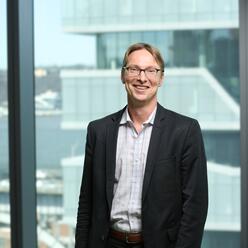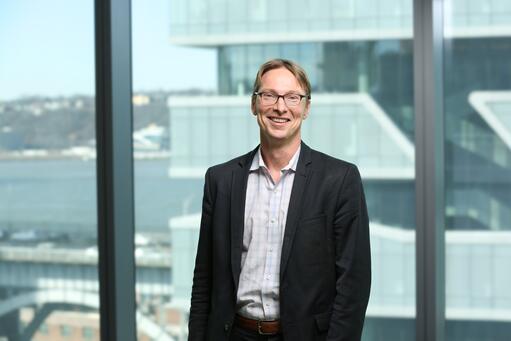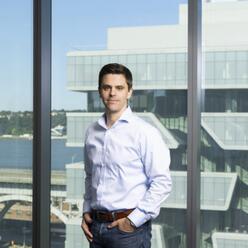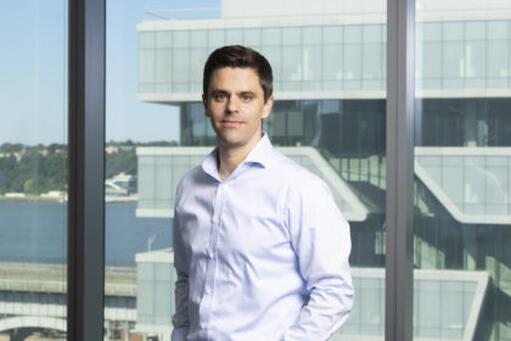NEW YORK, NY – Beginning on Monday, April 22, Earth Week is the world’s largest secular observance, rallying over a billion individuals each year to unite in efforts aimed at reshaping human behavior and advocating for impactful global, national, and local policy changes. As global attention focuses on Earth and the climate crisis, Columbia Business School's distinguished faculty experts are conducting pioneering research that covers housing sustainability, business adaptation to climate goals, ESG, and more.
The following studies by Columbia Business School faculty provide insights into vital topics that can transform outcomes for our planet:
Converting Offices to Housing—Since the onset of the COVID-19 pandemic, more office space is being left vacant while housing costs continue to rise. Conversion of office buildings to green apartments could help solve three problems: an oversupply of offices in a hybrid-and-remote-work world, a shortage of housing, and excessive greenhouse gas emissions. There are, however, lingering concerns about whether such large-scale conversions are economically feasible. A study by Stijn Van Nieuwerburg, Earle W. Kazis and Benjamin Schore Professor of Real Estate, identifies commercial office properties that are physically suitable for conversion and finds that about 9-12% of all office buildings across the U.S. fit this criteria. The research also identifies steps that federal, state, and local governments could take to facilitate conversion to housing. While challenges remain, this study suggests that transforming unused office space into housing is economically viable and that such conversions would make our communities more economically and ecologically sustainable. Read more about Professor Van Nieuwerburg’s research here.
Carbon Dioxide as a Risky Asset—As governments around the world strive to meet emissions goals, it is essential to understand the economic incentive for divestment from fossil fuels. According to a financial-economic analysis by Professor Gernot Wagner, author of the book Climate Shock: The Economic Consequence of a Hotter Planet, when risks from climate change are associated with high damages over the long term, societies are more likely to impose stringent mitigation of carbon dioxide emissions in the near term. The study finds that associating carbon dioxide investment with risk analysis provides economic support for stringent warming targets. Therefore, if the climate problem is presented as a risk-management issue, it could lead to an acceleration of the green transition. Read more on Professor Wagner’s research here.
Hollow Net-Zero Pledges, Lower Stock Prices—Professor Shivaram Rajgopal, the Roy Bernard Kester and T.W. Byrnes Professor of Accounting and Auditing, conducted research examining the credibility of carbon reduction pledges and how the implementation of these pledges affects a firm’s market performance. In an analysis of the net-zero pledges of 69 oil and gas companies, Professor Shivaram Rajgopal finds that the largest producers of hydrocarbons are much more likely to make formal pledges to cut emissions. However, the research finds that stakeholders consider companies less credible when they make pledges to achieve net zero with overly long timelines, have no board-level committee to oversee their emission goals, or refrain from tying c-suite compensation to emission reductions. As a result, companies that make pledges unsupported by these demonstrations of commitment to their goals tend to experience a drop in stock price. The research offers important new insight into evaluating and verifying net zero pledges. Read more about Professor Rajgopal’s research here.
Global Food Supply Threatened By Rising Temps— Rising temperatures caused by climate change may have a devastating impact on the world’s food supply. Professor Gernot Wagner, author of the book Climate Shock: The Economic Consequence of a Hotter Planet, found that using biomass materials to reduce emissions does little to mitigate climate concerns. The findings reinforce the urgency of early mitigation strategies and recommend that mitigation efforts must be underway by 2040 to avoid the worst outcomes. No new technologies will become available in the near future to compensate for the reduced capacity of biomass in reducing carbon emissions. If there is no significant preventative action and mitigation strategies are delayed, the world will face irreversible damage and severe food insecurity. Read more about Professor Wagner’s research here.
Enhancing Climate Change Research—Businesses play a central role in either exacerbating or improving environmental challenges. A study conducted by Vanessa Burbano, the Sidney Taurel Associate Professor of Business, considers how corporate sustainability research in the business domain can facilitate society’s broader response to climate-related challenges. By analyzing over 11,000 sustainability-related articles from 1994-2021, Professor Burbano finds that focus on environmental issues has waned over time despite the urgency of the climate crisis. The study proposes that the trajectory of sustainability research should change to improve our ability to help businesses address environmental challenges. Read more on Professor Burbano’s research here.
To learn more about cutting-edge research being conducted, please visit Columbia Business School.
###








